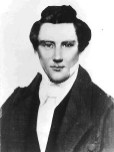
FAIR is a non-profit organization dedicated to providing well-documented answers to criticisms of the doctrine, practice, and history of The Church of Jesus Christ of Latter-day Saints.
| Answers portal |
| Joseph Smith, Jr. |

|
|
|
|
|
Many of Joseph Smith’s friends and neighbors signed affidavits that accused him and his family of being lazy, indolent, undependable treasure-seekers. Some of them claimed that Joseph had copied the Book of Mormon from a manuscript written by Solomon Spalding.
To see citations to the critical sources for these claims, [[../CriticalSources|click here]]
<onlyinclude>
<onlyinclude>
<onlyinclude>
<onlyinclude>
<onlyinclude>
| Claimant | Claims | Comments |
|---|---|---|
Levi Lewis |
|
|
Sophia Lewis |
|
|
Hezekiah M'Kune |
|
|
Commentary
Hurlbut's affidavits regarding the Spalding manuscript consist of interviews with family and associates of Solomon Spalding.
| Claimant | Claims |
|---|---|
Artemas Cunningham |
|
Nahum Howard |
|
Henry Lake |
|
John Miller |
|
Oliver Smith |
|
John Spalding(Brother of Solomon Spalding) |
|
Martha Spalding(wife of Solomon Spalding) |
|
Aaron Wright |
|
Commentary
See also:

FAIR is a non-profit organization dedicated to providing well-documented answers to criticisms of the doctrine, practice, and history of The Church of Jesus Christ of Latter-day Saints.
We are a volunteer organization. We invite you to give back.
Donate Now